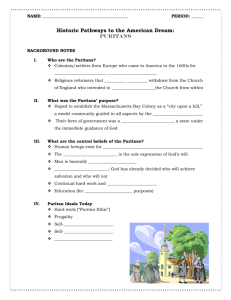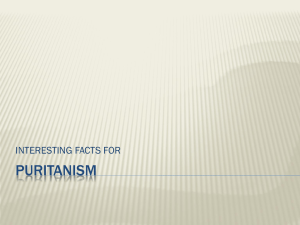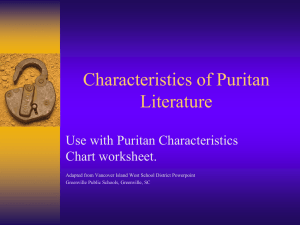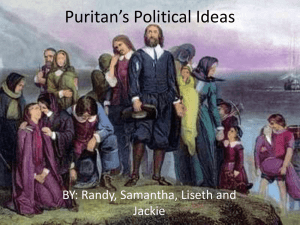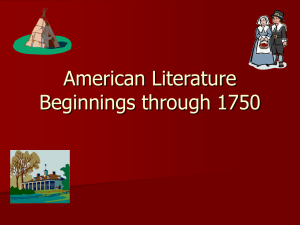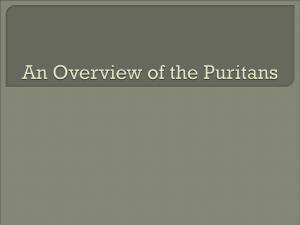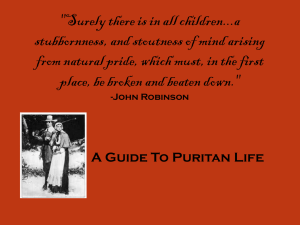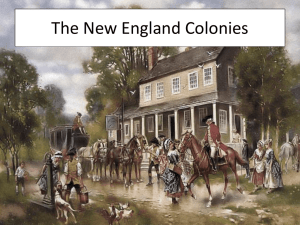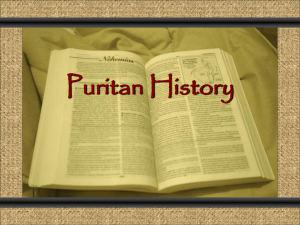Puritan Power Point
advertisement
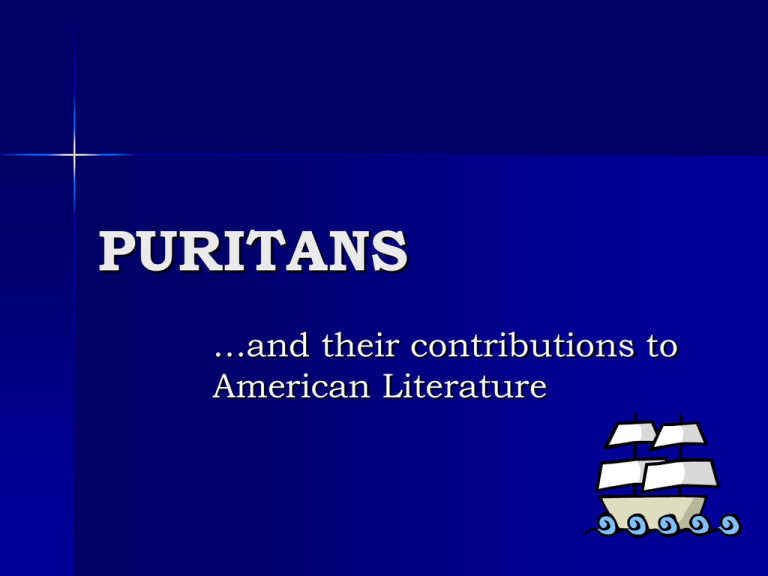
PURITANS …and their contributions to American Literature Who are the Puritans? Colonists/settlers from Europe who came to America in the 1600s for religious freedom Religious reformers that did not withdraw from the Church of England who intended to reform the Church from within How are they different from Pilgrims? Pilgrims were also religious reformers, however, they withdrew from the Church of England and became known as “Separatists” What was the Puritans’ Purpose? Hoped to establish the Massachusetts Bay Colony as a “city upon a hill,” a model community guided in all aspects by the Bible Their form of government was a theocracy, a state under the immediate guidance of God What were the Puritans’ Central Beliefs? Human beings exist for the glory of God The Bible is the sole expression of God’s will Man is basically evil Predestination: God has already decided who will achieve salvation and who will not Continual hard work and discipline Education (for religious purposes) How does predestination work? No one knows if they are “chosen” so, all devout Puritans searched their souls with great rigor and frequency for signs of grace The “elect” that will be saved mustn’t take election for granted, thus everyone must live as if they know they were elected Puritan Ideals Today Hard work (“Puritan Ethic”) Frugality Self-improvement Self-Reliance Education …are all values inherited from the Puritans as basic American virtues How did the Puritans contribute to American literature? Wrote theological studies, hymns, histories, biographies and autobiographies with the purpose of spiritual insight and instruction Fiction and Drama = Sin Puritans did write poetry as a vehicle for spiritual enlightenment Puritan Writing Sole purpose = moral instruction The writing style of the Puritans reflected the plain style of their lives – spare, simple, straightforward = Puritan Plain Style characterized by short words, direct statements, and references to ordinary, everyday objects Trivial Pursuit Knowledge: The Puritans founded Harvard College in 1636 to ensure a well-educated ministry The New England Primer a text studied by Puritan children when they first went to school Is this a primary or secondary source? Based on your reading… How widespread was reading meant to be? What is the image of God and religion presented by the primer? “The Trial of Martha Carrier” By Cotton Mather, a very influential Puritan minister who wrote over 400 works – including a history of the Salem witch trials of 1692 Is this a primary or secondary source? Based on your reading… What are the charges against Martha Carrier? What is the evidence against her? What is the Puritan sense of justice? Homework… Read “Sinners in the Hands of an Angry God” by Jonathan Edwards (HM pg. 124 – 129) – Find and record four quotations from the sermon that best exemplifies the Puritan philosophy and how it translated into how they lived. (*Use the provided handout)

